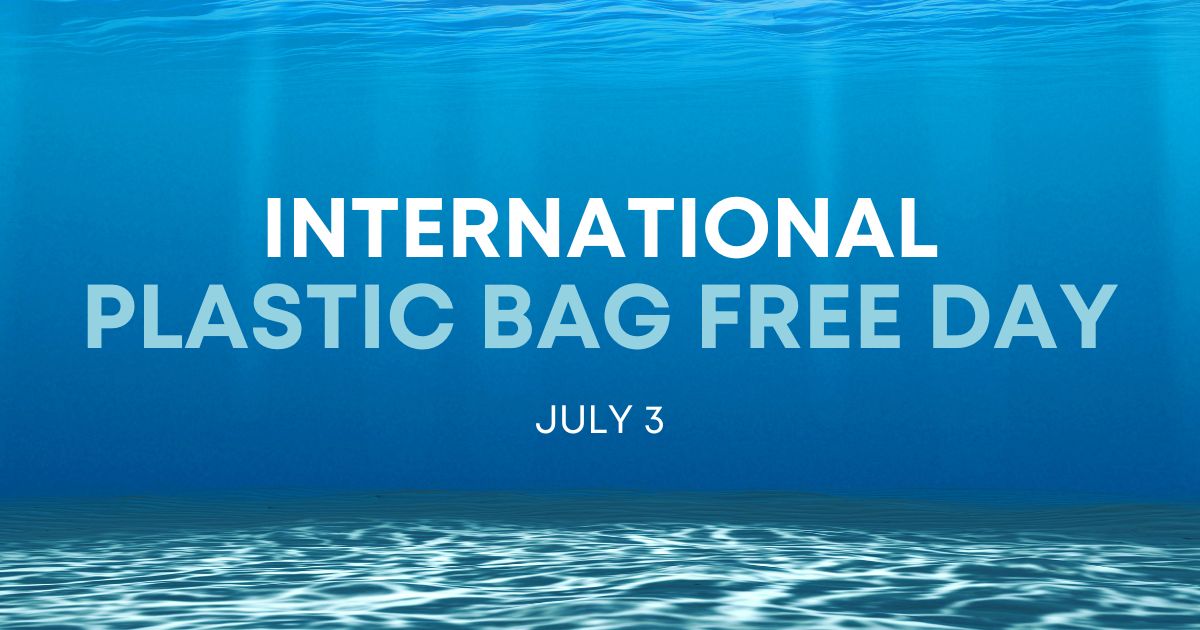It is International Plastic Bag Free Day, an event that gives us the opportunity to spread the word about alternatives to single-use plastic bags while protecting biodiversity and ecosystems. This day also serves to raise awareness and to offer learnings about the challenges facing the environment caused by plastics and innovations being developed to solve them. With the UN Plastics Treaty recently negotiated in Paris, we would like to discuss how organisations can collaborate with local communities and businesses to improve environmental and socio-economic health [1-3].
In 2019 alone, 353 million metric tons of plastic were produced. This is compounded by the fact that roughly 15% of this waste is recycled back into the economy. The majority of this plastic finds its way into the oceans and landfill, which showcases an issue that has been lingering for decades [2]. The scale of plastic pollution is immense and causes wide-ranging issues at environmental, economic and human health levels. Tackling such a problem is not easy, but institutions and coalitions such as the Plastic Pollution Coalition or the Ocean Cleanup have for goal to raise awareness around the threat of single-use plastics and claim to rid the oceans of plastic by 2040.[3].
With 80% of plastic waste being brought into our oceans through rivers, research shows that the challenge exists across the world including high-income economies such as countries of the European continent. When we examine our local streams and lakes in Germany or Switzerland, we learn that plastic pollutes our ecosystem in the same way it does in Asia, Latin America or Australia. Indeed, it is often not as visible, but it exists and threatens our local biodiversity, water quality and environment.
To cite a few examples, environmental analysis confirms that Lake Leman in Switzerland is filled with 55 tons of plastic every year [4]. Equally, the Rhine River crossing Europe from the Alps to the North Sea has up to 892,777 particles per square kilometre, one of the highest densities worldwide [5].
But how can small, medium, and large enterprises in Europe and worldwide contribute and help to clean the local and global water systems?
Two important ways can anticipate these challenges:
Partnerships and collaborations are important to actively test and trial the status quo and generate impact by raising awareness, by innovating operational processes and by educating clients, collaborators and suppliers [6]. As part of the sustainability engagement of each company, firms can partner with local authorities to support the effort for plastic to land in the water and to be collected from beaches and river sides. Through community engagement efforts, businesses can encourage their team members to support waste collection and volunteer work to support a flourishing community [7].
Equally, small, medium and large enterprises can undergo an audit of polymer materials to determine where to eliminate and substitute plastics within their operations and premises. Single-Use plastics, PET and microplastics can be avoided by reusable or degradable products. Unavoidable plastic waste should be recycled and not be put in waste bins under desks. With environmental best practices and internal waste and recycling policies, businesses can educate their teams and raise awareness. Simultaneously, environmental targets and goals can be included in employee reviews and considered an organisational value which will drive stronger employee engagement and commitment.
Key Takeaways:
- Plastic waste is a global issue, polymer material and microplastics generate significant challenges for Europe’s biodiversity, water quality and our environment.
- By partnering with local authorities as well as by implementing internal environmental and waste policies, small, medium and large enterprises can help to reduce plastic waste.
- Engage your workforce to innovate internal policies and share best practices to reduce plastic waste in your internal operations.
References
[1] Valerie Volcovici, 2023, “After rough start, UN plastic treaty talks end with mandate for first draft”, Reuters.
[2] United Nations Environment Programme, 2023, “Turning off the Tap. How the world can end plastic pollution and create a circular economy”.
[3] The Ocean Cleanup, 2023, “About”.
[4] Plastic Oceans, 2021, “Plastic Pollution is overwhelming Europe’s Lake Leman”.
[5] University of Basel, 2015, “Microplastics: Rhine one of the most polluted rivers worldwide”.
[6] Vincent Diringer, 2022, “Circular Economy, Opportunities for Innovation and Collaboration”, LEAD-WiSE.
[7] Vincent Diringer, 2022, “The Importance of Sustainable Business Models”, LEAD-WiSE.
